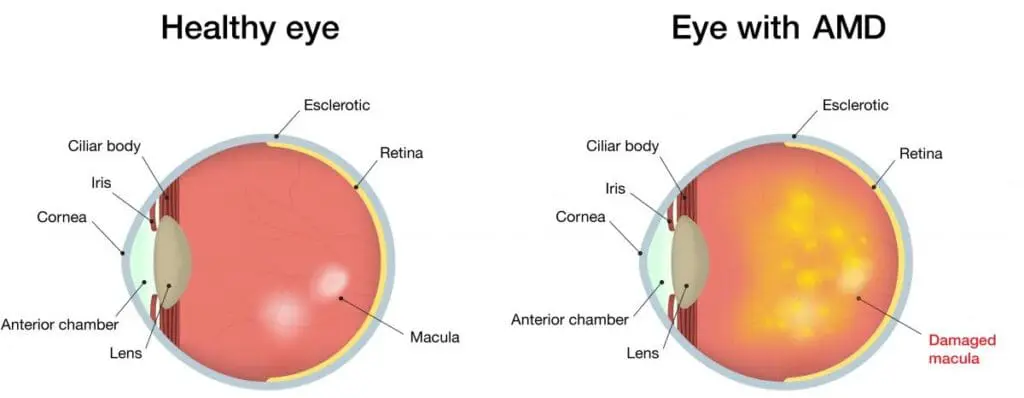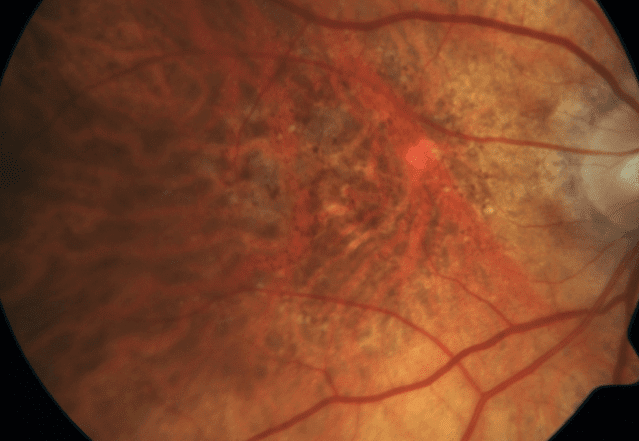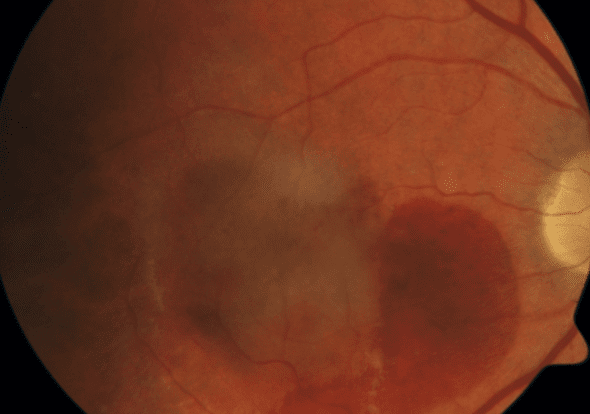The main symptom of ARMD is losing your vision. This can happen either slowly or quickly, depending on the type of ARMD you have. Early signs of the condition include difficulty reading, difficulty recognising people’s faces and distortions in the central vision.
Macular Degeneration (ARMD)
Although a leading cause of blindness in people 60 and older there are measures that can be taken to slow progression of the condition and newer treatments can help reduce irreversible blindness.


What is ARMD?
Age-related macular degeneration (ARMD) is an eye condition that causes the painless loss of central vision and is most common in people over the age of 50. The condition currently affects more than 600,000 people in the UK and is the leading cause of vision loss in the developed world.
It is estimated that at least 1 in 10 people over the age of 65 have some signs of AMRD and that it will continue to increase to almost 700,000 people in the UK by 2020, due to longer life expectancy and dietary changes. Watch the video below to find out more.
What are the symptoms of ARMD?
What are the types of AMD?

Dry AMD
Dry ARMD is the most common, but less serious form of the disease affecting about 85% of patients. The cones and rods photoreceptors in the central retina become damaged and the central vision progressively deteriorates very slowly over a number of years.
Treatment for dry Age-Related Macular Degeneration involves 2RT, a non-invasive laser therapy that targets the intermediate stage of the condition to slow its progression and reduce the risk of developing wet AMD or experiencing vision loss.

Wet AMD
Wet ARMD is the most serious type affecting approximately 15% of patients and it is so called because abnormal new vessels grow under the retina and result in leakage of fluid and blood in the macula with rapid loss of central vision within days.
Wet ARMD can now be slowed down by early intervention to prevent permanent loss of central vision. treatment involves drugs given as injections directly into the eye under local anaesthetic at around 4 to 8 weekly intervals.
Macular Degenerations FAQ
Over the past few years there has been a considerable amount of research about the causes of age-related macular degeneration. It is a genetic condition and several genes are known to be responsible for modifying the risk of developing it. However, large research studies have identified a number of lifestyle factors that increase the risk of developing Macular Degeneration and these include smoking, obesity, poor diet, high alcohol intake and UV light.
Early symptoms may include difficulty in reading, difficulty in recognising people’s faces and distortions in the central vision. The sight loss usually occurs gradually over time, although it can develop very rapidly due to sudden bleeding in the central area of the retina, the macula, with loss of central vision within a few days.
Diagnosis of Macular Degeneration can be achieved with just three non-invasive tests, including visual acuity measurement, dilated retinal examination and optical coherence tomography (OCT) of the macula, a novel non-invasive imaging test. Regular eye checks are vitally important for all over the age of 50.
A study concluded in 2001 showed that participants with Age-Related Macular Degeneratio who took a formulation consisting of antioxidants, the AREDS (Age Related Eye Disease Study) formulation were 25 percent less likely to progress to advanced over the five-year study period, compared with participants who took a placebo (a dummy medication). Many products with the AREDS formulation are available at your local chemists.
The treatment of wet AMD has been transformed over the past few years by the drugs which block the vascular endothelial growth factor (anti-VEGF) including Eylea (Aflibercept), Lucentis (Ranibizumab) and Avastin (Bevacizumab).
These treatments are given as injections directly into the eye (intravitreal injections) under local anaesthetic at around 4 to 8 weekly intervals and are effective at slowing down AMD progression, preserving eyesight and limiting permanent damage on the macula.
Miss Shahrnaz Izadi, BSc Hons, MBChB, MRCOphth, FRCOphth, Consultant Ophthalmic Surgeon at the Centre for Sight and Retinal Lead at Epsom and St Helier University Hospital says “We are extremely lucky to be able to offer these new treatments for AMD, however the early detection of wet AMD always results in better preservation of sight and reduces the risk of permanent damage to the eye.”
It is also recommended that first-degree relatives of AMD patients monitor their eye health on a regular basis with simple non-invasive tests.



